John the Baptist has been misrepresented by scholars of both Christianity and Islam.” —Ace Knight
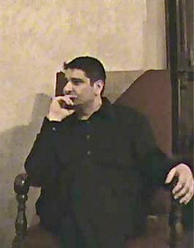
The author re-examines the conventional ideas about the relationship between the Baptist and the Christ that most people have accepted for centuries as gospel truth. He uncovers manifest discrepancies in the biblical narratives that have dominated European and even Muslim thought.
Recent research embodied in a new book by Ace Knight invites our attention to the predicament of John the Baptist, popularly known for little more than the story of his beheading by order of Herod Antipas at the behest of a seductive dancing girl, the infamous Salome. His book, The Black Prophet: He Lives, arguing from the chronological and historical evidence provided by the ancient Jewish historian Josephus and the New Testament about John, demonstrates that the story of his beheading is almost certainly spurious.
“Countless works have been published pertaining to the false crucifixion of the son of Mary by Muslims, yet the false beheading of the son of Zachariah is largely ignored, why?”
Comparison with the writings of Josephus gives the lie to this scenario for, as the detailed scrutiny and evaluation of Josephus’s text shows, Herod Antipas probably did not order John’s execution until 36 CE, half a dozen years later than most datings of the event of the crucifixion. Knight suggests that it was the Prophet Yahya (John the Baptist) who was placed on the cross and survived the ordeal and not Jesus, in a case of mistaken identity.
![]()
The book’s editor, Dr. Jay R. Crook, asks: “How would this later date affect our discussion of Knight’s theories, especially his suggestion that John was the principal actor in the crucifixion, not Jesus? Put simply, it would remove it from the realm of chronological impossibility to that of chronological possibility.” It would relegate the colorful John-Salome story (to which Josephus makes no reference) to the category of an urban myth, not history.
![]()
Step by step, his book carefully and plausibly resurrects the reputation of the Baptist, not as a minor gospel figure, the forerunner of Christ, but as a major prophet in his own right. In an article published in 2008, Ihya al’ Nabiy Yahya, he noted that the Quran, while not slighting Jesus, accords Yahya (John the Baptist) such a status, citing key words in the Quranic text such as sayyid (chief), hasur (concealer of secrets), and waliy (protector/guardian). He contended that these words, among others, have been misinterpreted by translators and commentators of the Quran, the result being that they have failed to confirm his unique status and his role in the messianic story.
![]()
Knight further criticizes those traditionalists who, he asserts, have fallen under the spell of the sensational Biblical account of John’s death and have repeated it in their commentaries without questioning its authenticity, even though there is nothing in the Quran to justify such a thing; indeed, Belica believes, the story goes against the entire tenor of the Quranic view of the prophet. He writes: “Countless works have been published pertaining to the false crucifixion of the son of Mary by Muslims, yet the false beheading of the son of Zachariah is largely ignored, why?”
![]()
Furthermore, Knight asserts: “The Prophet Yahya could not have been beheaded as has been asserted by Muslim and Christian scholars. With regard to Jesus, in the Quran, we read: Peace be upon me the day I was born, the day that I die, and the day I will be raised up again. (Q. 19:33) The verse states that Jesus was given safety and security in these three situations. But what about the Prophet Yahya? We find the same description for him as we find for Jesus, Peace be upon him the day he is born, the day he dies, and the day he is raised up again. (Q. 19:15) How does the supposed beheading of Yahya fit in the above Quranic verse of one given peace by his Lord? As far as we know, all the prophets mentioned by name in the Quran were delivered from their enemies. Yet, the Prophet Yahya, whose name ironically means He Who Lives, is popularly believed to have been put to death. In my opinion, this would cause an inconsistency in the Quran.” said Knight.
![]()
Knight takes on another issue that has exercised Quranic exegetes over the centuries: the meaning and implications of the word shubbiha used in reference to the Crucifixion. The Quran explicitly denies the crucifixion of Jesus, instead declaring that it only appeared so unto them. Taking the issue forward from that, Knight discusses the relations of Jesus and John and the nature of their missions. Knight shows how the meaning of shubbiha in the Quran could extend to the resemblance of the two prophets John and Jesus and other places as well. “John’s being put on the cross would in no way impugn the peace of God as given to other prophets, such as Abraham who was given the same peace when thrown into the blazing fire, yet rescued by the Almighty.” said Knight.
Knight feels the whole role of the Prophet Yahya (John the Baptist) in religious history should be reevaluated. He considers him the most neglected of the major prophets and that it is time to redress this slight.![]()
Dr. Mahmoud Ayoub, Professor of Islamic Studies and Comparative Religion at the Hartford Seminary, in his comments about Ace Knight’s book, writes: “[It is an engaging analysis of the life and mission of the two kindred religious personages, John the Baptist (Yahya) and Jesus (‘Isa).”
Geraldine Ahearn, recipient of the 2009 Gold Medal for the United States of America from the ABI-USA, has devoted thirty years to a nursing career in New York:
As an avid reader of the Holy Bible, how many countless times have you drawn your own interpretations, and conclusions? How many versions of the Bible have you read, comparing ancient manuscripts to modern day Scripture? As an open minded reader in faith, and Christianity, has your bias lead you directly to extensive research on the words, and works of Christ? Is is possible that Jesus did not die on the cross? Is the accepted view of the life of Christ incomplete?
Are we thirsty for the mysterious, thus craving for more information on what we doubt, or believe is missing? Are we comfortable, and completely satisfied in what we’ve learned in a lifetime about the son of Mary, and the crucifixion? These are only a few questions that the curious reader is left to ponder, after reading the cleverly written book.
As an educated scholar on Christian history, Ace Knight fills the pages with contradictions and controversy on the life of Mary, Jesus, and the crucifixion. The author presents persuasive arguments on theory which surrounds the events, and circumstances which took place during that era, obtained from years of elaborate examination.
The reader is left with yet another crucial question, has prevailing powers camouflaged the truth? The author’s comparisons are undeniable plausible, while he sites religious documents to support his arguments, leaving the reader amazingly surprised.
I would recommend this book to all reader’s who wish to explore facts, and seek additional knowledge obtained through research about faith, and Christianity. In comparison to the book “Holy Blood, Holy Grail” Ace Knight enlightens his open minded readers to other possibilities as they absorb each bit of information with a grain of salt. The author does not shoot the facts into the reader’s face. Instead, he gently challenges the senses while using theory as the key to open the door to other possibilities as we draw our own opinions, and conclusions.
The book is precise, and interesting. Regardless of which road the reader takes on the teachings of the life of Christ, Ace Knight provides us with the ultimate message that remains the same, eternal Blessings in the light of Christ. Combined with that message and the author’s presentation of research, if just one reader is left with any doubts, then the author’s mission has been accomplished. This book is an impressive, passionate read, and is as Powerfully Moving as “THE PASSION OF THE CHRIST”with Mel Gibson!
Geraldine Ahearn, A.I.O.M.
author of 6 books, CCRN
Author Geri Ahearn, INC.
Lifetime Member ABI Women’s Review Board
The most conclusive arguments in Islamic tradition to prove or disprove something is to use the Quran to prove another point in the Quran. This Ace Knight has done in his work on John the Baptist, in particular, John having been a concealer of secrets
Though largely self-educated in Islam, Mr. Knight attended classes in New Jersey about religious tenets and the doctrinal differences among the various Islamic sects under the tutelage of a shaykh from Nigeria. While there, he participated by giving lectures on Christian doctrines. He also studied the proper recitation of the Quran (tajwid) under the guidance of an Afro-American Muslim, Imam Bashir Hasan, to a degree of proficiency that caused him to be selected to perform the call to prayer because of the excellence of his voice and pronunciation. His eagerness to learn more about Islam motivated him to travel to North Africa in order to engage in dialogue with various scholars there.


















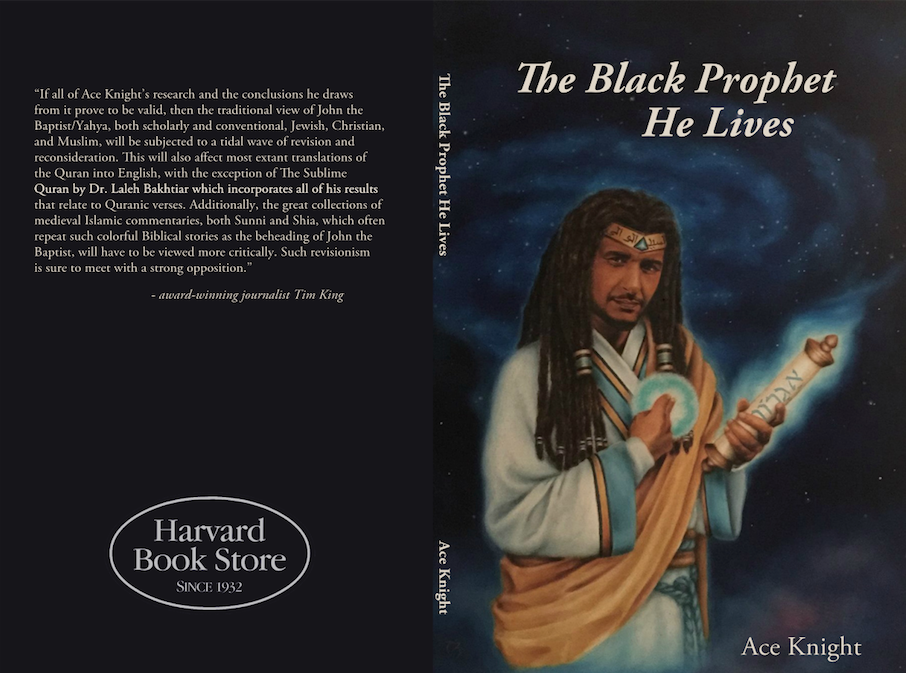
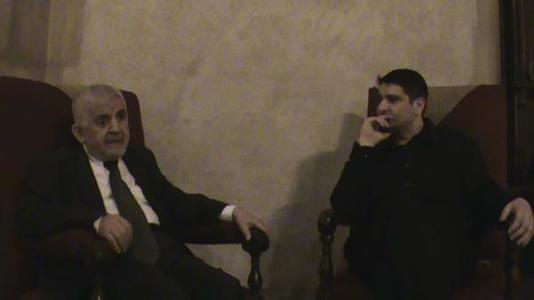
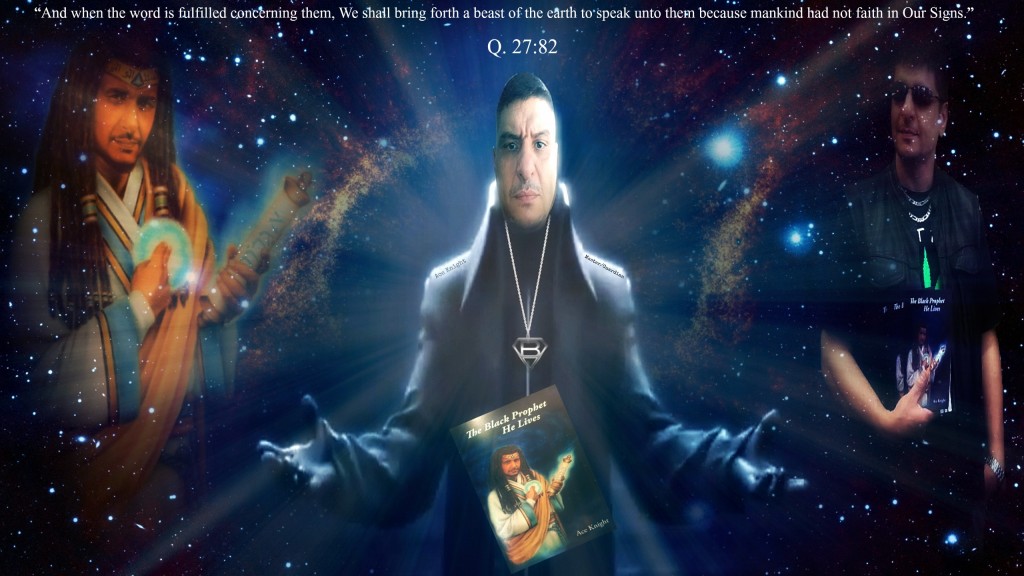
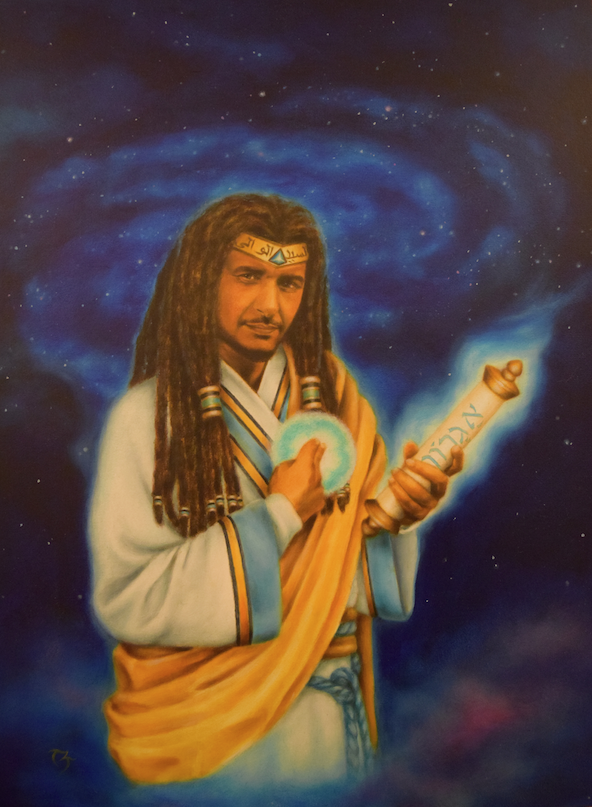
 London
London
 Oregon
Oregon





Leave a Reply
You must be logged in to post a comment.